Last month, a trailer for the new Exorcist film – the scariest trailer ever, apparently – was released. The Exorcist: Believer isn’t out until Friday 13 October – just in time for Halloween – but Hollywood movies about demons are legion. This one follows The Pope’s Exorcist (released on Good Friday), in which Russell Crowe is a maverick exorcist who doesn’t play by the book, but gets results – despite the pen-pushers at (Vatican) City Hall.
The Reverend Canon Dr Jason Bray, the Bishop of St Asaph’s ‘deliverance minister’, will not be watching either film. He hasn’t even seen the original Exorcist – ‘I don’t go big on horror movies, overactive imagination, probably’ – although the cover of his book Deliverance shows him in a black coat and trilby, holding a leather bag, looking into the unknown in the Max von Sydow pose. (He giggles when I point this out, claiming it was the photographer’s whimsy.)
Every Anglican diocese has people like Fr Jason, whom you’re going to call when there’s something strange in the neighbourhood. Parish priests are not supposed to tackle paranormal activity themselves, but refer it to their bishop; and the bishop will very quickly pass it on to his team of deliverance ministers, as they’re now called. Most of them are anonymous and discreet – my own diocese’s website says tersely that any priest who needs to contact the deliverance team will already have the mobile number – but Fr Jason was outed by a newspaper after speaking at a conference about clergy insurance. (Deliverance is not considered a ‘normal parish activity’ for insurance purposes, so has to be done under the bishop’s insurance.)
Since then, he has been explaining to disappointed journalists that his job is much more like the sitcom Rev than The Exorcist: ‘You almost wish that someone’s head would spin or they’d projectile vomit. Almost.’ Instead, the deliverance ministry is what he calls ‘extreme pastoral work’ – freeing people (or more usually places) from malign spiritual influences. But, he says, ‘you get used to the idea that there isn’t going to be anything there’. His very first case was an example. He couldn’t understand why the council’s housing officer had called him in, until a senior cleric explained afterwards that tenants might get moved if they could persuade the council their house was haunted.
I meet Fr Jason in his parish church, St Giles’ in Wrexham. It’s a Gothic masterpiece built on a hill, supposedly on the instructions of a phantom voice after construction on its original site collapsed overnight. It also has a fading ‘Doom’ painting above the chancel showing the souls of the dead rising from their graves. During our interview, children in the nave are excitedly wrapping each other in toilet roll under the authority of the curate. ‘I have a feeling,’ Fr Jason sighs, ‘that might be the raising of Lazarus.’ But he doesn’t enquire.
It is not that Fr Jason is an incurious man, but he is practical. ‘If there’s a presence there, it’s my job to invite God to remove it, because it shouldn’t be there. But the scientific explanation – I’ve got no idea.’ He is interested in the diagnosis only insofar as it dictates the treatment. Poltergeist activity, for instance, is caused by someone alive and present at the time, and so a Requiem Mass would not help. ‘I’ve come across a couple of people who have an excess of energy that triggers stuff around them. It’s really weird. Adolescent girls, yes, adolescent boys, people going through stress at work, people going through severe illnesses – it might tend to be people who keep their illness to themselves.’
He accepts that demonic possession is a theological possibility, but he has never seen it or performed a major exorcism. That doesn’t mean he hasn’t been asked. ‘But if someone’s pleading with me to give them an exorcism, I can pretty much guarantee they don’t need it. If you have been taken over by an evil spirit, the evil spirit will not let you wander into a church and badger the vicar.’
This creates an interesting question of ethics: how would someone consent to exorcism? If they do consent, they don’t need it; and if they do need it, they – or the demon controlling their will – won’t consent. This didn’t come up in the movies, but safeguarding and the Human Rights Act figure larger in Anglicanism than demonology.
Much of Fr Jason’s work is in guiding people towards mental health services. In some cases, however, his diagnosis is that there is, actually, something Not Quite Right. (This is as far as he will go.) He gives the example of a house he was asked to visit; the child in the family used to sit on the landing to talk to ‘the man on the stairs’. The parents assumed it was an imaginary friend that he’d grow out of, until they started feeling uncomfortable in the house. Fr Jason walked around it on his own, and found one particular place where he had difficulty breathing. He called the family up – he had isolated the exact place where the child sat talking to the man on the stairs.
After he’d celebrated the Eucharist and blessed the house with holy water, they could all walk from one end to the other without discomfort. But Fr Jason doesn’t waste time on analysing what was Not Quite Right: ‘There is an experience of something that goes wrong, an experience of inviting God to do something about it. God dealing with it, that’s easy. What we haven’t quite done is work out a coherent theology for the “going wrong” end. Did somebody die on that staircase? Did they trip and break their neck? I don’t know.’
This seems to me a very Anglican response to the supernatural – doing what works rather than waiting for a theology. Even the low church deliverance ministers will hold a service for the departed, calling it a ‘celebration of light’. This sort of fudge is not, apparently, a dangerous deceit. Fr Jason’s experience is that there are two sorts of priests who are deliverance ministers: ‘People like me, relatively high church, and charismatic evangelicals. Not an awful lot in the middle. Charismatic evangelicals are almost trying to replicate the exorcism ministry of Jesus, on firm biblical foundations, and there are people at the other end, often with an interest in monasticism or mysticism.’
This is the one criticism he has of Phil Rickman’s ‘contemporary exorcism’ novels: that although Rickman has done his research (Fr Jason was adviser on the 2015 ITV adaptation of one of the books), the main character, Revd Merrily Watkins, is the sort of middle-of-the-road Anglican who doesn’t end up in deliverance ministry.
I ask him if there are any representations of his job in popular culture that he does like. He smiles and mentions Ghostbusters. ‘Having a hoover that sucks up ghosts would be absolutely fantastic on occasion.’
Got something to add? Join the discussion and comment below.
Get 10 issues for just $10
Subscribe to The Spectator Australia today for the next 10 magazine issues, plus full online access, for just $10.
You might disagree with half of it, but you’ll enjoy reading all of it. Try your first month for free, then just $2 a week for the remainder of your first year.

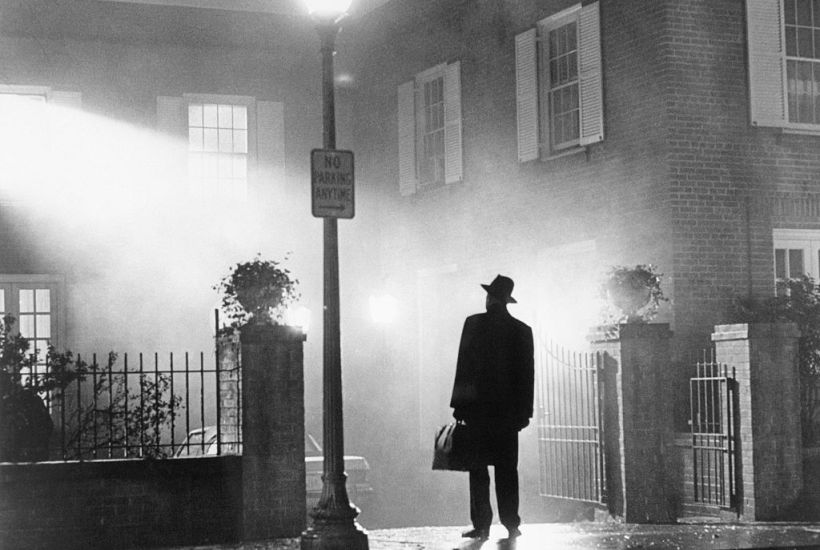
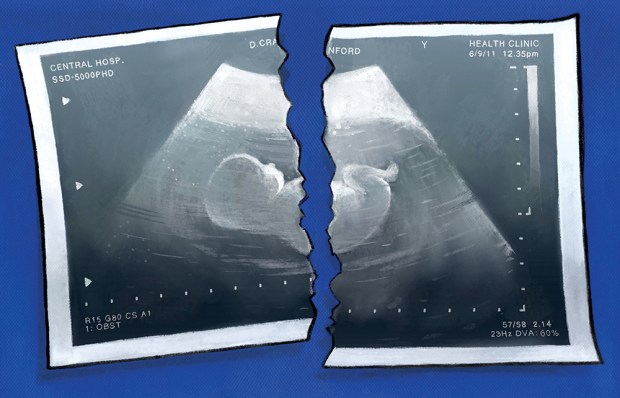
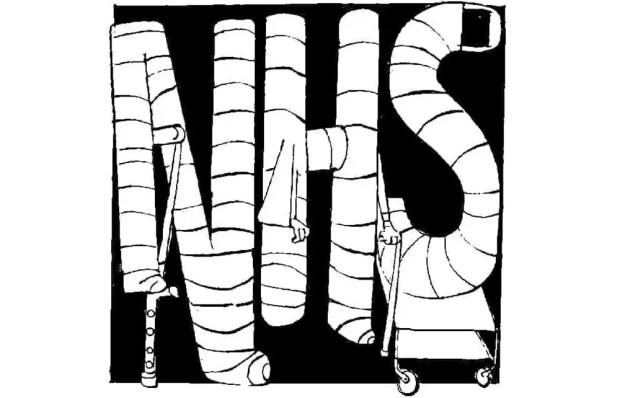

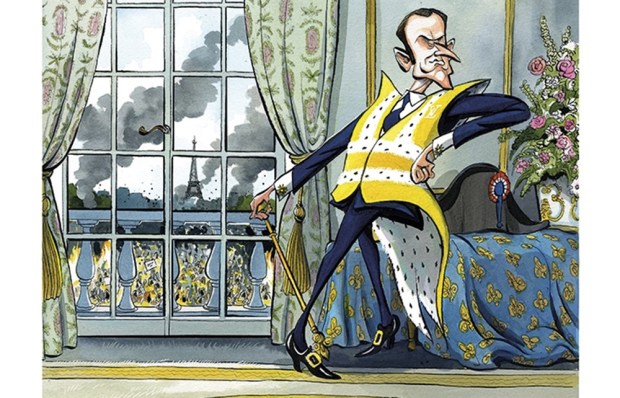
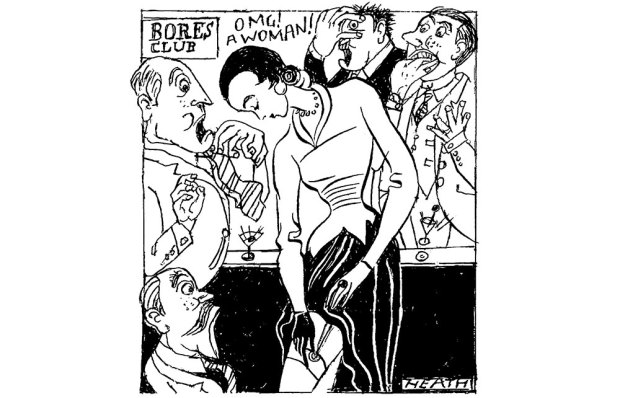






Comments
Don't miss out
Join the conversation with other Spectator Australia readers. Subscribe to leave a comment.
SUBSCRIBEAlready a subscriber? Log in